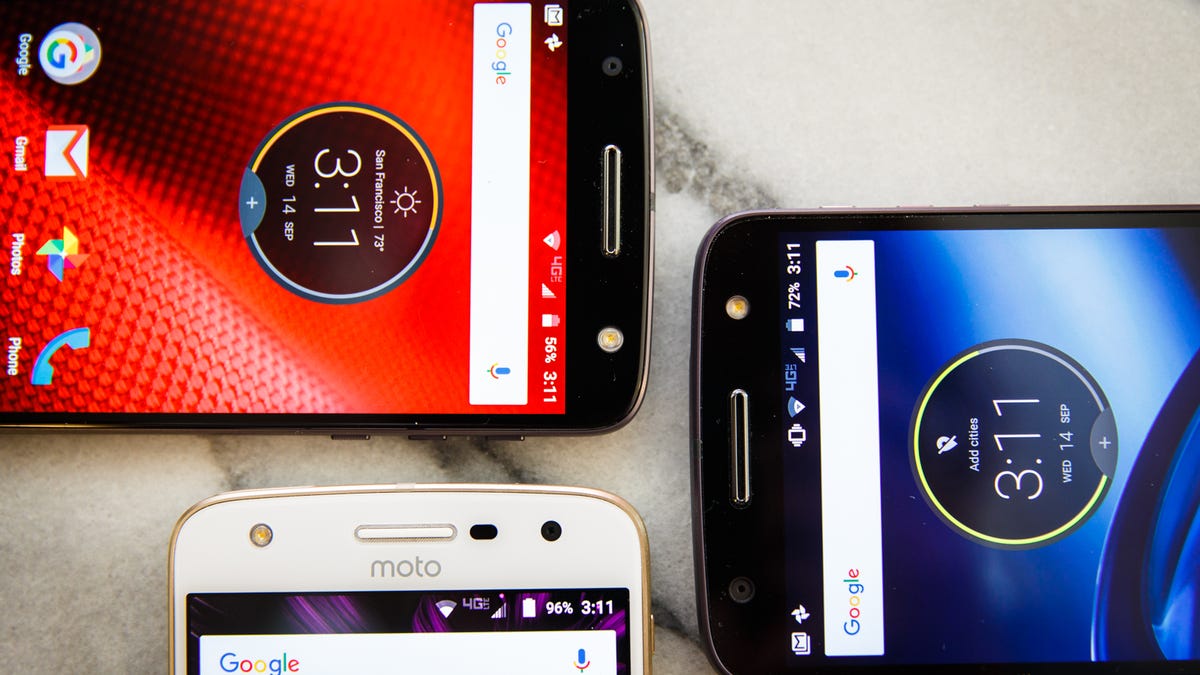Motorola: We would've caught Samsung's Note 7 battery flaw
The phone maker says that its battery testing is second to none and that it didn't need to change things after the Note 7 started catching fire.

Motorola says it has a strict regimen of testing when it comes to battery safety.
Samsung's Galaxy Note 7 sent the wireless industry into a frenzy when the phones started catching fire.
Samsung itself recalled and scrapped the phones, and many other companies started looking into their own manufacturing processes. But at least one phone maker held firm with the processes it already had in place.
"Absolutely not," said Motorola's Russ Gyenes when asked whether his company made any changes after the Note 7 problem flared up. Gyenes, an engineer who focuses on batteries, was speaking to a group of journalists on Tuesday.
While Samsung has largely repaired its image with the launch of the Galaxy S8, the potentially volatile nature of battery technology remains an issue. The Note 7 incident put a spotlight on how companies in all industries ensure the safety of the batteries in their devices. Samsung, for instance, introduced an eight-point battery check that it shared with the industry in hopes of raising standards everywhere.
When asked about Samsung's test, Gyenes smirked.
"I looked at that eight-point check," he said. "Why weren't they doing it before?"
His comments are bold for any company, even one whose legacy in dealing with battery technology goes back to the invention of the first cell phone. Hoverboards, e-cigarettes, electric cars and computer batteries have shown at least isolated instances of batteries catching fire. Boeing fielded questions about the safety of lithium-ion batteries for its 787 Dreamliner. Gyenes noted that Motorola testified as an expert in those proceedings.
The discussion was part of a broader campaign to get Motorola -- a historic brand in the wireless world that fell on hard times with the rise of the iPhone -- back into the public consciousness with a new brand strategy and phones like the Moto Z.
Gyenes said that Motorola, a unit of Chinese tech giant Lenovo, would have caught the issues with the Note 7 batteries early on because it looks at the process from the individual cell construction level, or well before the batteries are mass produced. It also performs checks on supplier X-ray processes and has an audit with 118 questions that its battery manufacturer partner must pass. Get one wrong, and the process is a failure.
"That's a showstopper," he said.
In that eight-point check, the addition of X-ray tests and more accelerated battery usage would have helped, but Gyenes suggested the introduction of that process was more of a "marketing campaign."
Samsung, for its part, said the new process wasn't put in place to stop future Note 7-like incidents, but was more holistic. The company is also vowing to do these checks themselves, which go beyond other vendors.
"The eight-point battery process reflects what we learned from the Note 7, but it represents an overall improvement in our quality assurance," said a Samsung spokesman.
To its credit, Samsung has laid out its entire process for everyone to see, which is a rarity in this industry.
https://www.cnet.com/special-reports/galaxy-s8-gives-samsung-a-second-chance/Motorola is attempting to capitalize on the Note 7 incident, but Gyenes said he's been eager to talk about this for a long time. "I've been behind the scenes for years asking why can't we sell safety," he said.
Tech Enabled: CNET chronicles tech's role in providing new kinds of accessibility.
Logging Out: Welcome to the crossroads of online life and the afterlife.

